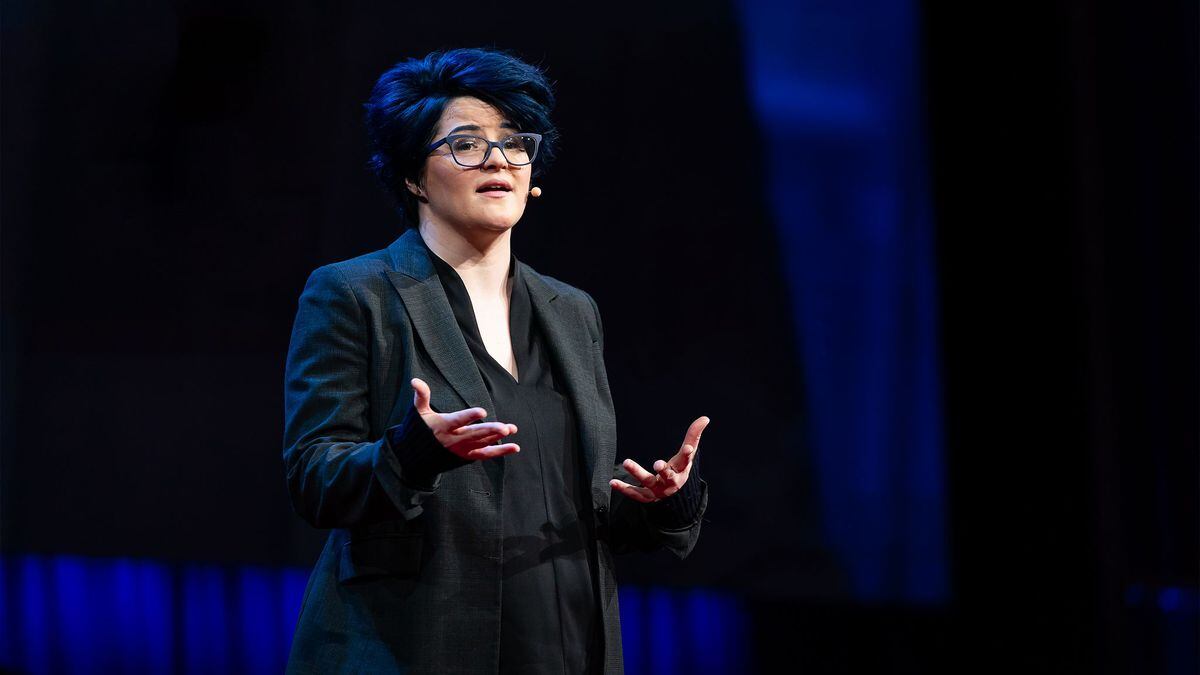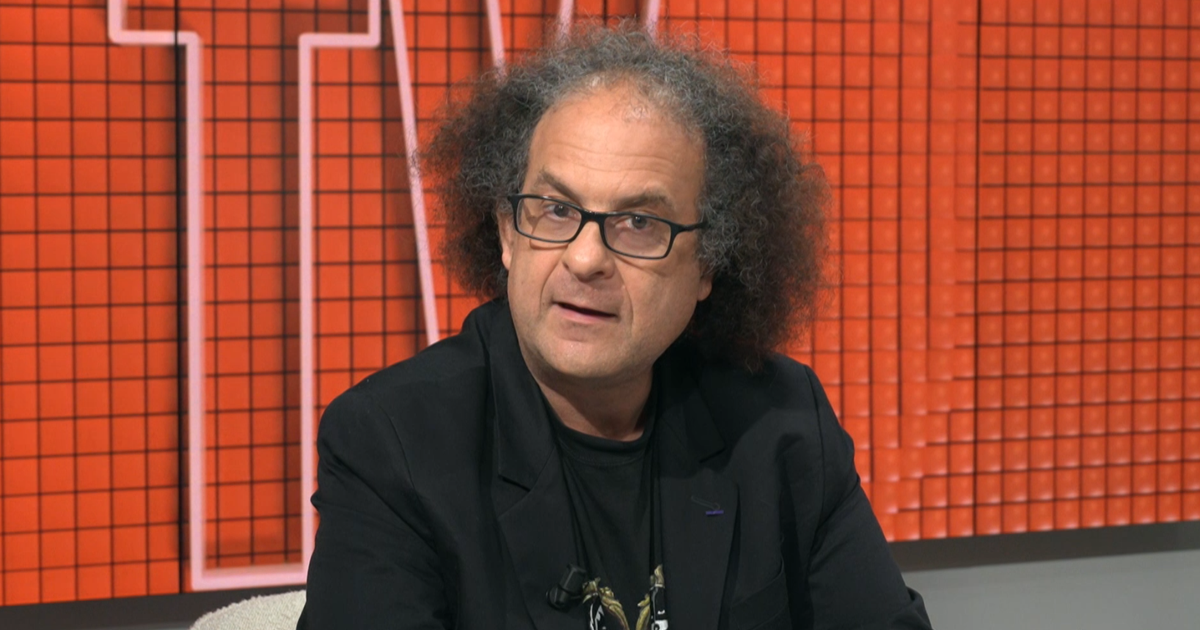What can make two young people, in their twenties, healthy, in love, without stress or other problems, without sexual pathologies and with an economy that allows them to live in a flat for themselves, should resort to couples therapy because Even though they have desire, they haven't had sex for months?
What strange cosmic force prevents them from wearing out mattresses and breaking box springs from using them so much?
Most likely, the answer lies in the mind, the so-called "crazy monkey" of the Buddhists, who often drifts the ship of existence.
Erroneous beliefs, which have always been the great impediment of
homo sapiens
to develop his full potential.
Various ideas and ideologies, chastity belts with an impregnable security lock.
If the different religions demonized pleasurable sex and eroticism in the past, and still in the present, now there is a whole range of concepts that, misinterpreted, can constitute the most powerful sexual repellent.
More information
How an Excel spreadsheet can save your sex life
X and Y are a heterosexual couple in their twenties, with no health or financial problems, who have been living together for a short time.
With a feminist profile and a very equal distribution of tasks, both maintain certain friendships separately, but they admit that they are in love and want each other.
Sex is very important in their lives and a frequent topic of conversation with their colleagues and even with their respective parents;
but they decide to go see a sexologist because they haven't had relationships for four months.
She is the one he always wants and he begins to feel too much pressure from his partner;
at the same time that she is guilty, because he doesn't always feel like it, nor can he satisfy her.
The sexual adventures of her friends only add to his sense of wasted time and her frustration.
"This profile abounds in couples therapy consultations because, curiously, now there are more problems in young people than in older people," says Francisca Molero, a gynecologist, sexologist, director of the Ibero-American Institute of Sexology and president of the Spanish Federation of Societies of Sexology.
“If the situation persists, she will start to stop being so understanding and he may even develop erection problems.
The basis of this problem can be very high and unrealistic standards of what sexuality and desire should be, often caused by porn or the stories that others tell us about their sexual exploits, not always true.
Despite the fact that there is a lot of information, there is a lack of sexual education that banishes myths or false beliefs”, says Molero.
Relational diversity is now added to diversity, the banner of the new times.
"Sexuality is a biopsychosocial and cultural dimension and, therefore, it is highly impregnated by the contemporary," says Miren Larrazabal, clinical psychologist, sexologist and president of the International Society of Specialists in Sexology (SÍSEX).
“There are very diverse sexualities, starting with the spectrum of asexuality.
People who don't have relationships, but do caress and kiss, although they don't go further.
Couples who jointly decide not to have penetration to avoid the patriarchal model of heteronormative sexual relations.
Lots of
kinky
sex , BDSM, open relationships, readers of
Promiscuous Ethics
of Dossie Easton and Janet W. Hardy, who are transitioning towards polyamory and, at the same time, young people with more traditional relationships than those of their parents, with a lot of jealousy and the constant demand for proof of love”.
There is a great desire to experiment, but does this respond to a true adventurous spirit or a desire to follow fashion, even at the cost of not favoring us?
Are we
fashion victims
of the erotic trends of the moment and confuse free love with neoliberal or consumerist love, without affective responsibility?
Do we put ideology before our authentic sexual preferences?
For many couples it is tragic to go from easy, testosterone-filled sex, from falling in love, to more peaceful and relaxed ones.
In the long run, passion is undoubtedly lost, but intimacy is gained
Toni Martín, doctor, clinical sexologist and couples therapist
This experimentation can generate headaches, as in the case of polyamorous people who come to the clinic for jealousy management problems.
“The first thing someone has to consider is whether this option, as valid and respectable as any other, matches their erotic personality,” says Toni Martín, a doctor, clinical sexologist and couples therapist, with a private practice in Barcelona.
“I always say that you have to know each other sexually.
My theory is that there are four well differentiated typologies, according to the fantasies one has.
There are romantic fantasies, those that seek new sensations, those that involve strangers and those based on power relations.
If you are romantic, polyamory will not get along;
in the same way that those who seek new sensations will find it difficult, on more than one occasion, to comply with monogamy”.
"Everything cools down," says Martín.
“It is the second law of thermodynamics, but for many couples it is tragic to go from easy, testosterone-filled sex, from falling in love, to more peaceful and relaxed, from oxytocin, after they have been together for some time.
In the long run, passion is undoubtedly lost, but intimacy is gained”, affirms this expert.
Have we become so lazy that we can only have relationships with the excitement of a teenager in full hormonal eruption and the desire of a lion in his week of heat, in which he can copulate up to 40 times a day?
"An erroneous concept shared by many young people about desire is to think that this is an event in which one almost loses control of oneself and, if this sensation is not experienced, sex is not feasible," Larrazabal emphasizes, "but What they don't know is that desire doesn't always come first.
Sometimes, you have to start getting excited for the desire to make an act of presence later.
This misconception leads many people to think that they suffer from hypoactive sexual desire, when they are not.
In this apparently hypersexualized world, the frequency of relationships has dropped drastically, and studies confirm this.
“I blame two important factors,” says Toni Martín, “on the one hand, there are social networks and screens after 10 at night, which prevent us from disconnecting.
For this reason, one of the first measures that we propose when there are relationship problems is the digital blackout, starting at certain hours and on certain days”.
On the other hand, there is pornography: “The excess of porn has accustomed people to very strong stimuli, which then do not correspond to daily life.
With porn it is very easy to get turned on, but the degree of satisfaction is inversely proportional, without taking into account the feeling of emptiness that it leaves”.
“There is an enormous self-demand regarding sexuality that creates problems where there are none
Francisca Molero, director of the Ibero-American Institute of Sexology
It is also possible that mere mortals lose their
flow,
compared to the operated, muscled and made-up superbeings that appear in porno-fiction, which many interpret as pure and, above all, harsh reality.
"There is an enormous self-demand regarding sexuality that creates problems where there are none," says Francisca Molero.
“You have to be physically perfect, always be willing and relationships become a test, a constant way of testing yourself to reach unrealistic standards.
This generates a lot of anxiety and, in the long run, it can end up causing certain pathologies, such as erectile dysfunction, ”she adds.
Disorders such as dyspareunia (pain during intercourse) or vaginismus (pain that makes penetration impossible) have increased in women in recent decades.
"They almost always have a psychological basis," Larrazabal points out.
“The first may be due to the lack of erotic play, wanting to please the partner or self-imposed certain practices that we do not like, but that we believe we should carry out.
These pain problems can lead to a phobia of relationships or penetration”, adds the expert.
"There is a huge mental dispersion around sex, due to the amount of information we have," concludes Toni Martín.
“We are inside a dispersed mind that is looking for new sensations;
but sexuality is concentrating attention on the body, on the physical game, on the sensory.
Our duty, today, is to temporarily turn off the mind in order to connect with the body.
Rita Abundancia
is a journalist, sexologist and author of the website RitaReport.net.



/cloudfront-eu-central-1.images.arcpublishing.com/prisa/LWDVUVTJDJHNBCBLJKNGLR3PSA.jpg)

/cloudfront-eu-central-1.images.arcpublishing.com/prisa/XTAU622NTRE3RB52SAFMPD7F64.jpg)
/cloudfront-eu-central-1.images.arcpublishing.com/prisa/WPWCSHOWPNB4ZHMQCKZJHXPMOM.jpg)








